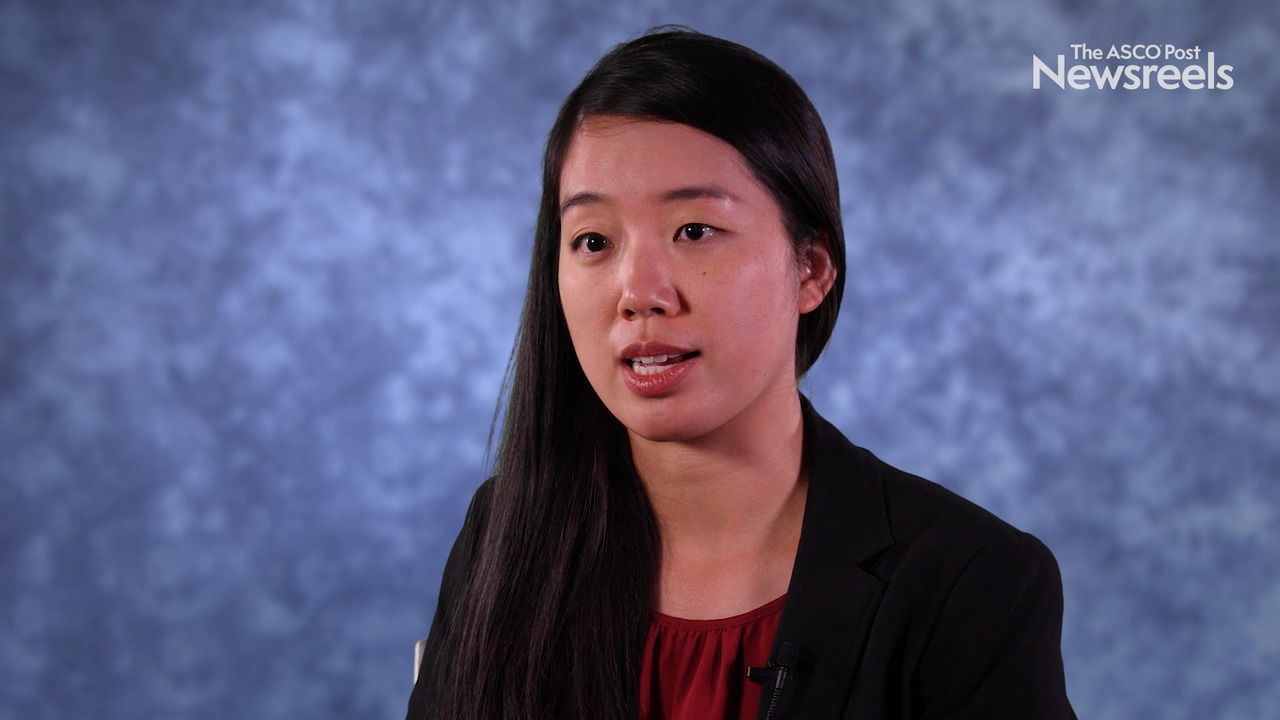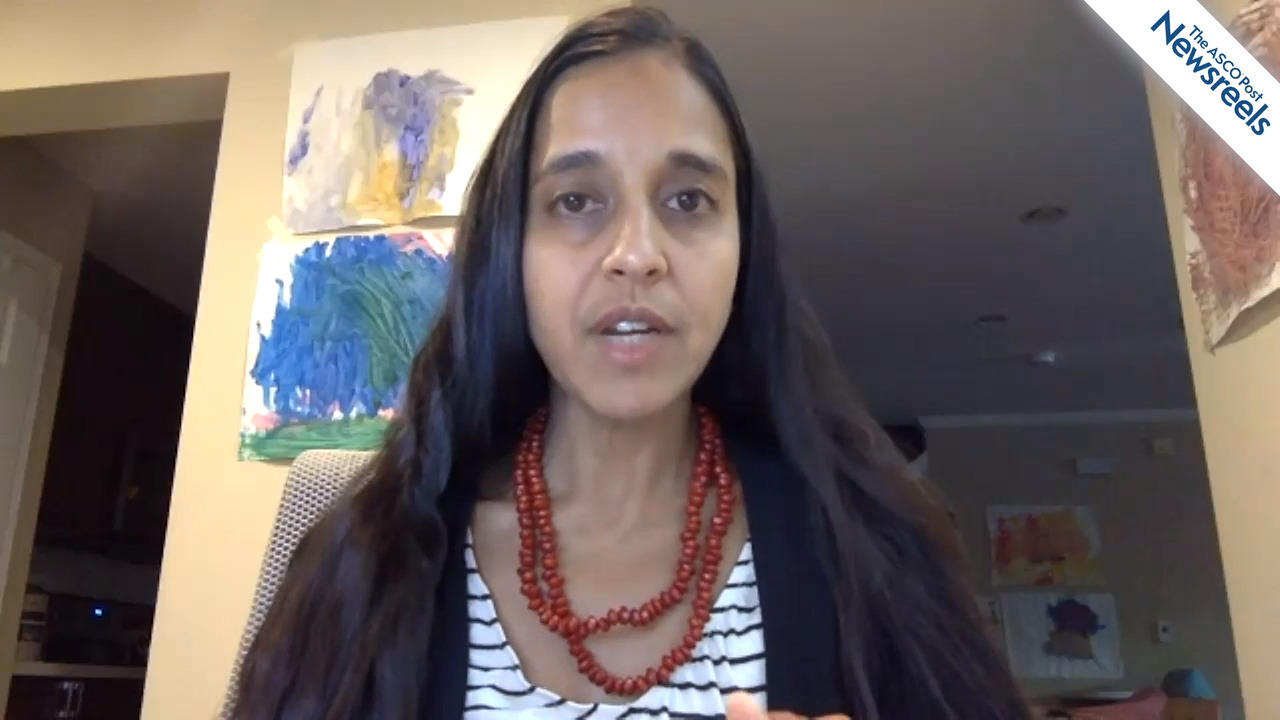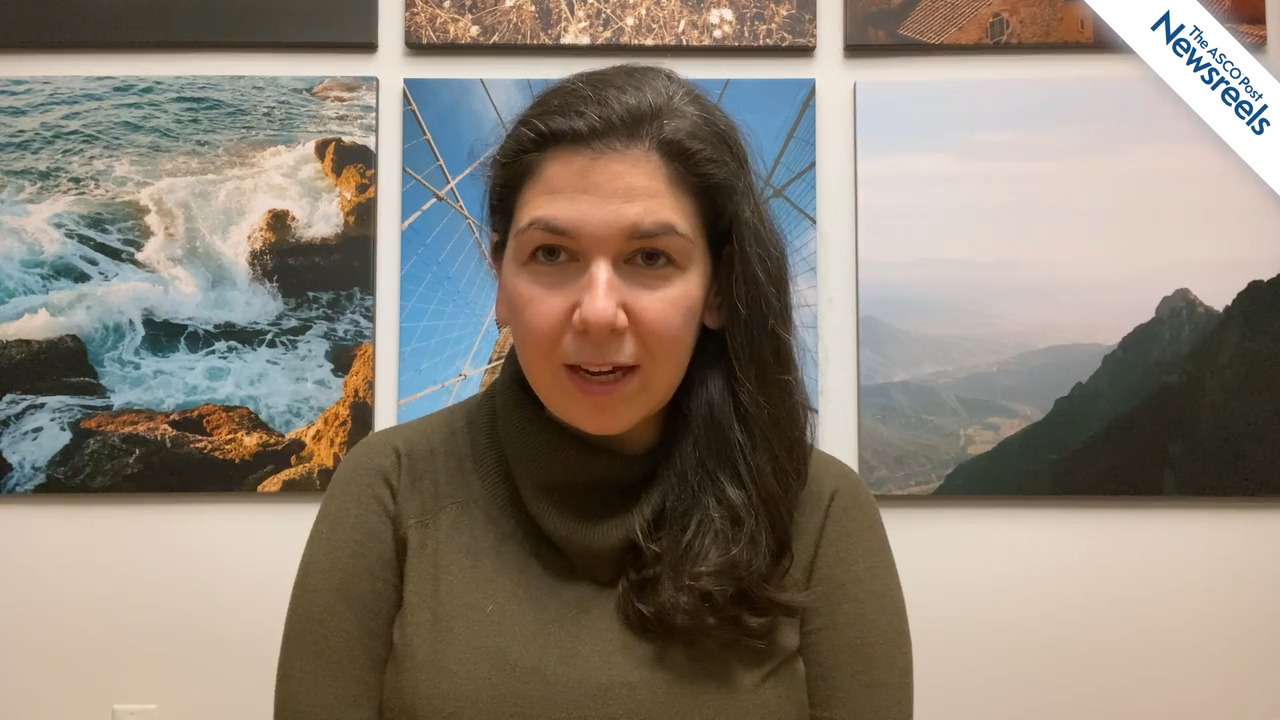Aakash Desai, MPH, MD, on the Precision Oncology Promise: Can We Deliver?
2021 ASCO Quality Care Symposium
Aakash Desai, MPH, MD, of the Mayo Clinic in Rochester, Minnesota, talks about the urgent need for drug pricing reform, given the average expenditure of Medicare part D, and the ultimate out-of-pocket costs for patients with cancer. The promise of precision oncology will fail, says Dr. Desai, if we fail to bring the right drugs to the right patient at the right time, with the right price.
Related Videos
The ASCO Post Staff
Jenny Jing Xiang, MD, of Yale University School of Medicine, discusses a universal, standardized clinical trial prescreening protocol, which streamlined research recruitment and was associated with yearly increases in patient enrollment at the Veterans Administration (VA) Connecticut Cancer Center. The Center became the top-accruing VA site for National Cancer Institute–sponsored trials and was ranked in the top 10 enrolling sites nationally for VA and non-VA hospitals.
The ASCO Post Staff
Divya Gupta, MD, of the Stanford Cancer Center, discusses an intervention utilizing a computer model and lay care coaches to improve advance care planning conversations with patients who have metastatic cancer. The study, Dr. Gupta reports, showed a trend toward less intensive care for patients at the end of life.
The ASCO Post Staff
Manali I. Patel, MD, MPH, of Stanford University School of Medicine, discusses data suggesting that community health workers and innovative payer models can better engage low-income and minority patients with cancer, improve their health-related quality of life, and reduce unwanted and unnecessary acute care.
The ASCO Post Staff
Divya A. Parikh, MD, of Stanford University School of Medicine, discusses findings that suggest an evidence-based tool, the Serious Illness Conversation Guide, may engage patients with metastatic or recurrent urologic cancer in goals-of-care conversations, potentially resulting in an increase of documentation of their goals in the electronic medical record.
The ASCO Post Staff
Morgan R.L. Lichtenstein, MD, of Columbia University Medical Center, discusses a single-center prospective study examining the complex relationship between time to oral oncolytic receipt and clinical or process-related factors, such as prior authorization, diagnosis, and insurance type.





